MercoPress. South Atlantic News Agency
Tag: Climate change
-
Monday, September 16th 2024 - 14:51 UTC
Brazil gripped by “climate terrorism,” says Minister Silva

South America's largest country is going through a wave of 21st Century “terrorism” which capitalizes on the high temperatures and low humidity to set large areas on fire damaging people's health, biodiversity and destroying forests, Climate Change Minister Marina Silva sqaid Sunday, Agencia Brasil reported. The official referred to this phenomenon as “climate terrorism.”
1 comment -
Monday, September 2nd 2024 - 11:35 UTC
Mass gas emission cut proposed in Brazil by 2035

According to a study by the Climate Observatory network, Brazil needs to cut greenhouse gas emissions by 92% by 2035 if South America's largest country is to make a fair contribution to limiting global warming to 1.5 degrees Celsius (ºC), Agencia Brasil reported. This target is based on 2005 emissions of 2.4 billion net tons, reducing the annual limit to 200 million net tons, it was also explained.
-
Monday, September 2nd 2024 - 07:44 UTC
Drought in Brazil reaching unprecedented limits
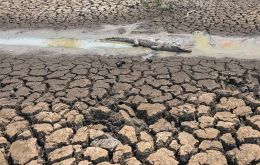
According to Brazil's National Center for the Monitoring of Natural Disasters (Cemaden), South America's largest country is facing the most severe drought in its recent history. The agency also noted that more than one third of the country was affected by “extreme drought.”
-
Monday, July 15th 2024 - 07:50 UTC
Potential climate risks to exploitable fish biomass in all oceans, FAO report

New projections highlight potential climate risks to exploitable fish biomass for nearly all regions of the world's ocean, including top producer countries and those with high reliance on aquatic foods, according to a report released by the Food and Agriculture Organization of the United Nations (FAO).
-
Tuesday, July 9th 2024 - 07:56 UTC
June 2024 the hottest on record, Copernicus study finds
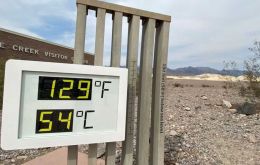
Last month was the hottest June on record in the northern hemisphere, according to a study from the European Union’s Copernicus Climate Change Service released Monday. It was also the thirteenth month in a row to set a temperature record.
-
Wednesday, June 26th 2024 - 10:50 UTC
Three icebergs sighted off Ushuaia
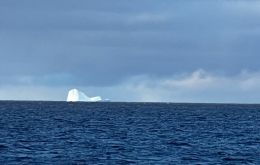
Argentina's Coast Guard (Prefectura Naval Argentina - PNA) alerted all sailing ships this week of three icebergs near Ushuaia and advised them to avoid all unnecessary approaching these ice floes, of which only 10% is visible on the surface. The first detection was reported last Saturday by the Argentine-flagged fishing vessel Echizen Maru and the latest spotting came through on Monday at the Beagle Channel exit into the open sea.
-
Monday, May 20th 2024 - 10:45 UTC
Wars and climate change to blame for slowdown in world commerce, UN official says
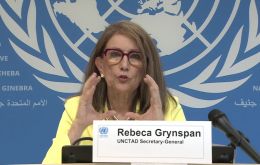
A high-ranking United Nations (UN) official warned last week that worldwide commerce was threatened by climate change and wars such as the ongoing conflict in Gaza.
-
Monday, May 13th 2024 - 10:55 UTC
LatAm and Caribbean hit hard by crises stemming from El Niño and climate change, according to WMO
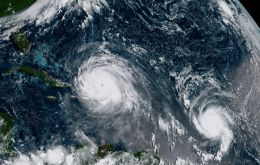
The World Meteorological Organization (WMO) pointed out last week that Latin America and the Caribbean were going through a series of weather crises linked to the El Niño phenomenon and climate change. The current one in the Brazilian State of Rio Grande do Sul was one of the worst.
-
Monday, April 29th 2024 - 14:38 UTC
Emperor penguin colonies in Antarctica suffer as sea-ice diminishes
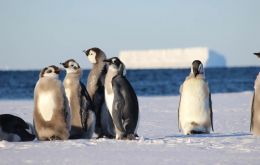
Record low levels of Antarctic sea ice in late 2023 resulted in breeding failures in a fifth of the continent’s emperor penguin colonies, according to a new study from the British Antarctic Survey (BAS).
-
Thursday, April 11th 2024 - 19:44 UTC
Rotating supply cuts launched as Bogotá's water reservoirs are running dry

Authorities in the capital of Colombia began rationing water on Thursday as local reservoirs were reported to be nearing alarming levels due to the El Niño phenomenon coupled with the aftermaths of global warming. It has not been ruled out that the severe drought might result as well in an energy crisis hitting some 10 million people who live in Bogotá and the surrounding areas.
